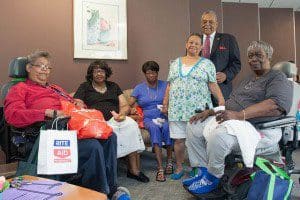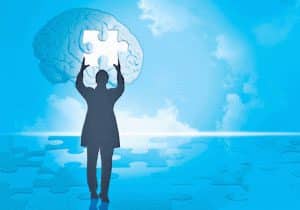A contribution to research that continues even beyond life
Brain donation is vital to science

…and important to families
For a family, brain donation permits a definitive neuropathological diagnosis beyond “AD probable,” “MCI,” or other assessment made through clinical observation and other testing while their loved one was alive. This is often a comfort to families, and can also contribute important information to a family medical history.
Especially needed: brain donation from normal controls

That’s right. Studying individuals who remain cognitively well into their 70s, 80s, and beyond, helps science better identify exactly what goes wrong, and when, in the brains of persons who develop Alzheimer’s, MCI, or other age-related cognitive disorders. These healthy individuals in research are known as “normal controls.” Brain tissue from normal controls is a most precious resource in science’s battle against Alzheimer’s disease and is especially needed.
Key to brain donation: a supportive family

If you wish to be a brain donor, please talk with your family about your decision, and talk with us about how you can provide your next-of-kin the necessary information to act on your intention.
The Penn Memory Center can only accept brain donations from participants in the Aging Brain Cohort Study. If you or your loved one is a study participant, please contact Nicole Oliveira at nicole.oliveira@pennmedicine.upenn.edu or 215-760-7722. If you are not a study participant but are interested in alternative options for brain donation, please contact Patricia Salley, PA-C, at 215-662-4373 or patricia.salley@pennmedicine.upenn.edu.
For questions post-mortem, contact Kevin Davies, Center for Neurodegenerative Disease Research Administrative Coordinator, at daviesk@mail.med.upenn.edu or 215-662-4474.
FAQ: Frequently Asked Questions About Brain Donation
Who is eligible for brain donation to our program?
Patients, normal controls, and other research participants who have been well evaluated over time by the Penn Memory Center.
How is the brain donation procedure performed?
The brain is removed by experienced autopsy technicians through an opening created low on the back of the skull. All other tissue is then properly repositioned and carefully sewn in place, with the stitches hidden. There are no visible indications of the procedure, should open casket viewing be desired.
Are funeral arrangements affected, or are there costs involved?
No. The next-of-kin of the registered brain donor simply contacts our autopsy telephone service, operating 24 hours a day, 7 days a week and holidays, immediately after the registered donor’s death. Our service pays your designated funeral provider for transport of the body to the University of Pennsylvania for the brain donation procedure, which requires approximately two hours to perform, and to then transport the body to your funeral facility. There is no charge to a family for any aspect of the brain donation process.
How is donated brain tissue used?
The brain is examined by neuropathologists at Penn’s Center for Neurodegenerative Disease Research (CNDR), and the donor’s family receives a report. Tissue is used in current research and banked for future study. Samples may also be shared with researchers worldwide who can add to and advance our knowledge.
Is donation compatible with religious beliefs?
Organ and tissue donation, for medical diagnosis and to advance research that can help provide a healthier future for generations to come, is compatible with nearly all world religions. If you have concerns, please discuss this issue with your spiritual advisor to learn how your religion interprets brain donation.